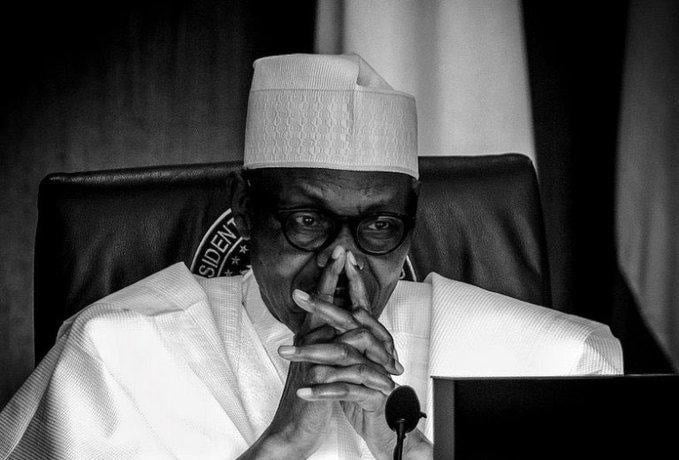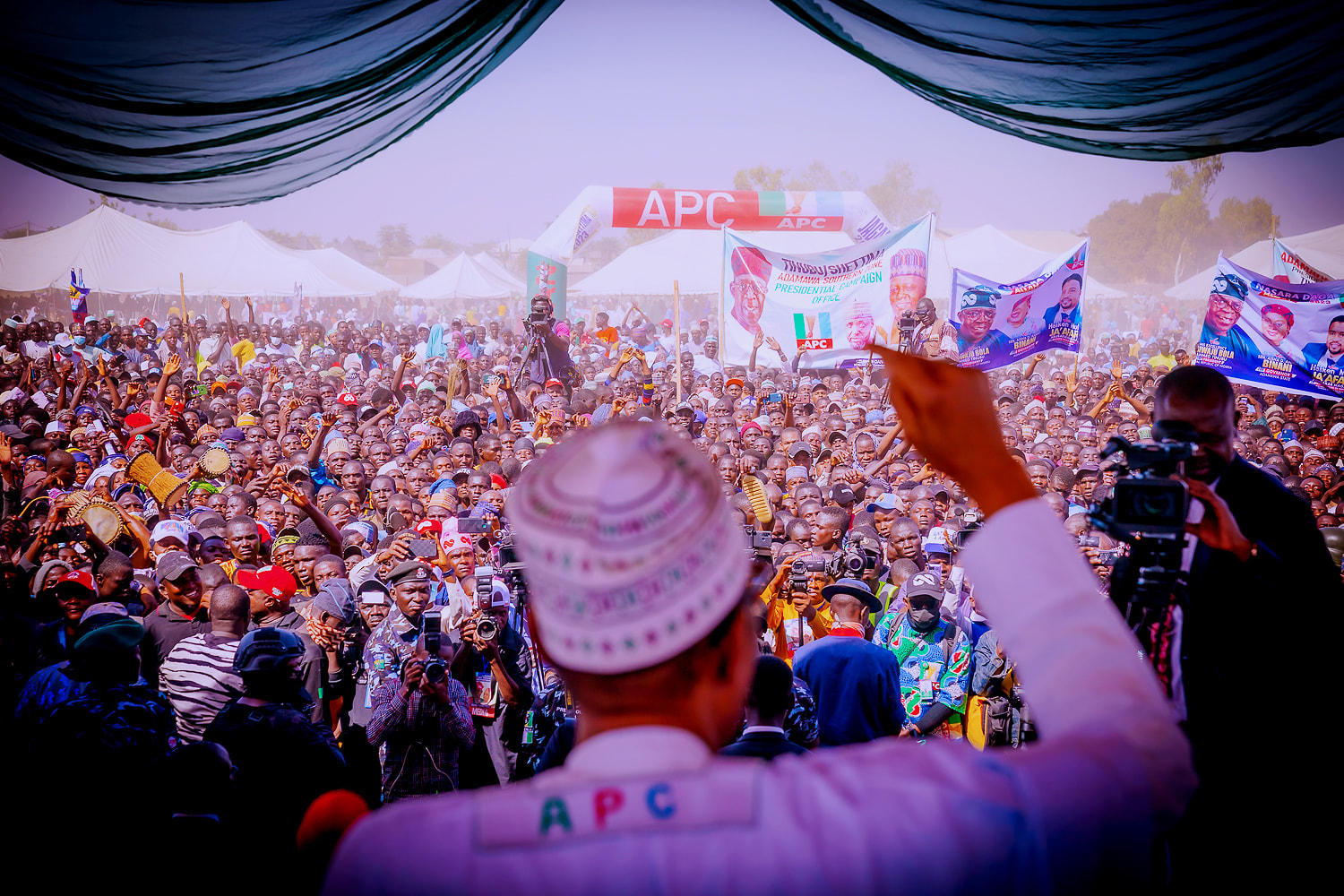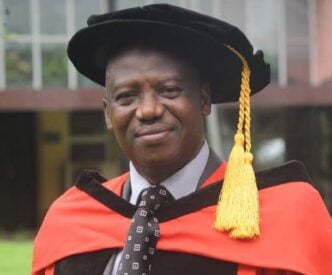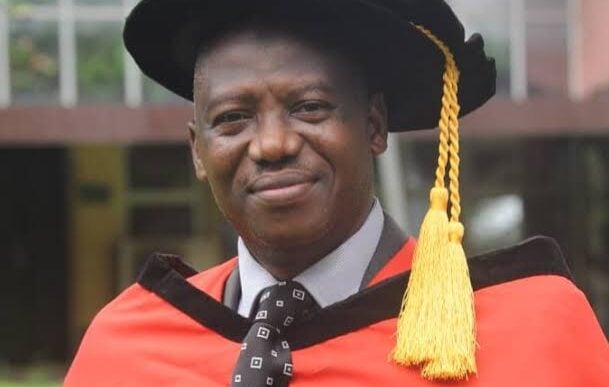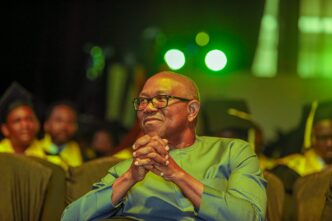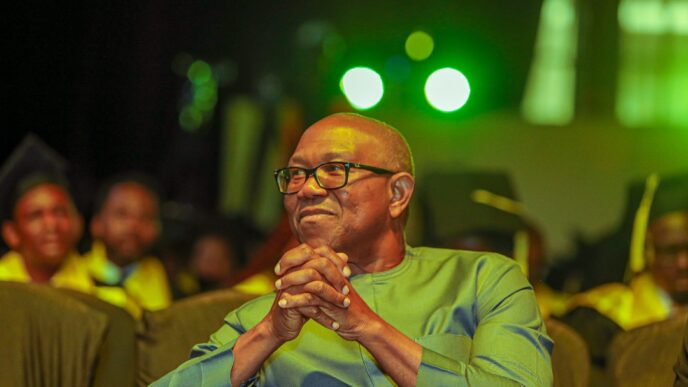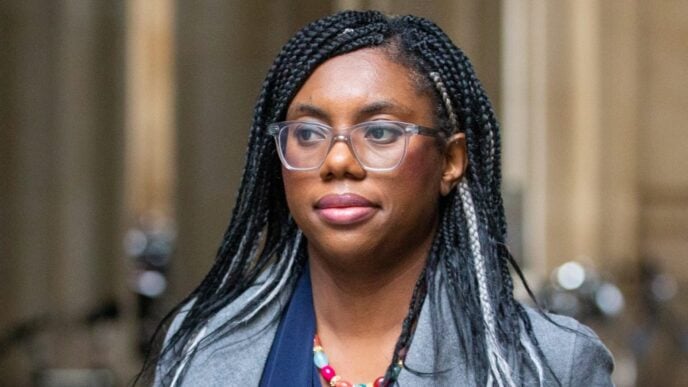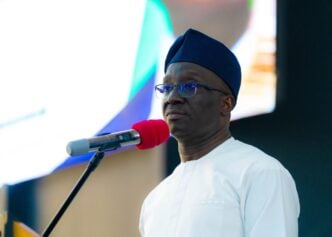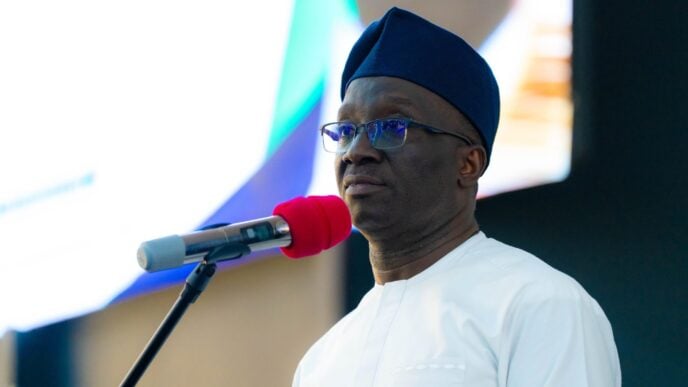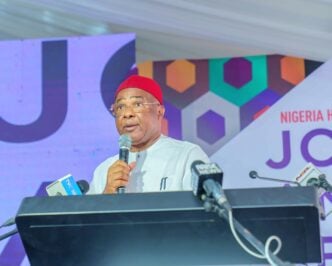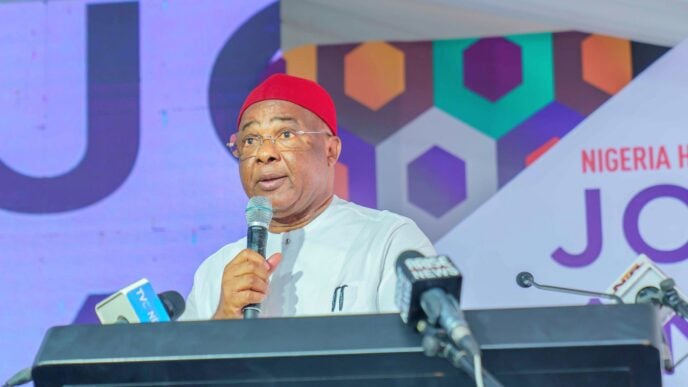In the political theatre of Nigeria, tectonic shifts rarely wait for the curtains to fall, whenever any significant occurrence happens, like the death or exit of a key political figure. Barely days after the passing of former President Muhammadu Buhari, rumblings from the Congress for Progressive Change (CPC) tendency of the All Progressives Congress (APC) signal a looming political divorce within the ruling party. What had once been a fragile coalition of strange bedfellows, forged in 2013 from the CPC, ACN, ANPP, a faction of APGA, and a splinter from the then ruling party (PDP) called the “nPDP,” now teeters on the brink of disintegration.
The CPC bloc, Buhari’s political soulmates and ideological allies, are reportedly weighing an exit option from the APC fold. Their grievances are said to have stemmed from (about two) years of political sidelining, culminating in President Bola Ahmed Tinubu’s “firm grip” on the party’s machinery. That is, a grip that appears to tighten with each passing month of his administration. So, what becomes of the CPC bloc? And what does this portend for the power balance within the APC? More crucially, how does this shift influence Tinubu’s chances of re-election in 2027?
A Marriage of Convenience Faces Its Reckoning
The APC, from its inception, was a merger of necessity, not ideology – a sort of marriage of convenience. It was united in its ambition to dethrone the PDP, and send the then President, Dr. Goodluck Jonathan, back to Otuoke (his Bayelsa State country-home), not in any shared philosophical vision, value, or ideology. Buhari’s CPC brought northern grassroots appeal and a military-era aura, at a time when insecurity has become the “new normal”, in a once-peaceful and prosperous Nigeria. Tinubu’s ACN, on the other hand, carried the political infrastructure and financial war chest of the South-West.
Advertisement
Now, with Buhari gone and his loyalists feeling increasingly alienated, the CPC bloc’s relevance within the APC wanes. Their potential exit could leave a vacuum in the North — a region that still holds the electoral swing keys in Nigeria’s complex political arithmetic. The Babachir Lawals, the Abubakar Malamis, of this world who already have a foot, each, out of the party, would however have some analysts say, “did they support Tinubu during the last election?” “Did he not win, despite their refusal to support?”
Meanwhile, other members of the CPC family remaining in the party, but under a rumoured uncertain political future, are the likes of Governor Abdulrahman Abdulrazaq of Kwara State. The interest of the Governor is firmly in who succeeds him. That, is an issue that could be another factor that would further alienate the President from the remnants of the CPC tendency in the APC. His choice (of who succeeds) might not align with that of the President, as the latter is also rumoured to be in favour of someone from a senatorial district, different from where the Governor’s preferred choice comes from. The Governor who is from the Central senatorial district, is said to be in favour of a northern senatorial person, in pursuit of fairness, equity, and unity, being the only zone yet to produce a governor since 1999. He seems bent on righting the wrong created by his emergence in 2019, based on the unwritten rotational agreement among the three senatorial districts in the State. On the other hand, the rumoured candidate of the President is from the southern senatorial district. Should the Governor and the President not find a common ground before the end of 2026, the party, APC, might further be depleted by the exit of someone as important and strategic as Governor Abdulrazaq—a CPC person by political origin. He is also the Chairman of the umbrella body of the 36 State Governors – the Nigerian Governors’ Forum (NGF). A forum that is unknown to the constitution but with massive political influence.
However, let us not romanticize the CPC’s strength. In the aftermath of Buhari’s demise, it is a bloc stripped of its principal glue. This is a fact. Without the lanky General from Daura, what remains of the group is a scattered network of disgruntled loyalists, many of whom have either been co-opted into Tinubu’s fold or politically neutered over time. The much-touted 12 million votes is now more of a myth than a fact. Even while Buhari was still alive, a presidential election was held without him being in the race (in 2023), and APC could not garner up to 9 million votes. Yet, APC with Tinubu as the candidate still managed to win, no thanks to the fragmented oppositions in the colours of the PDP (led by Atiku), the LP (led by Peter Obi), and the New Nigeria People’s Party – NNPP (led by Musa Kwakwanso), who shared among themselves about 14 million votes. That would have defeated Tinubu arms down, had there been a coalition or unity among them. What Tinubu lost in the famed Buhari’s 12 million votes, he made up for with Rivers State’s (vote) largesse, courtesy of Wike’s protest against the PDP’s failure to zone the party’s ticket or chairmanship to the South.
Advertisement
For the records, here is the final result of the election: in the final scores, APC recorded 8,794,726 votes, followed by opposition parties, among whom are the PDP, who scored a total of 6,984,520. In the third place is the LP, who scored 6,101,533, and the NNPP, 1,496,687, mostly from Kano. APC’s Tinubu breasted the tape, despite losing Lagos, Kano, Kaduna, and Kano.
So, even if the supposed inheritors of the 12 million votes do exit (which remains speculative), their destination is unclear. Do they form a new political party? Do they rebrand under another platform to court northern populism? Or do they collapse into existing opposition parties like the PDP, Labour Party, or African Democratic Congress (ADC)—the newly refurbished apartment for the ongoing coalition, championed by displaced PDP members and disgruntled APC? Each path is riddled with uncertainty, but all roads would likely lead to a splintered vote in the North, like it happened in 2023.
Tinubu’s Chessboard: Threat or Opportunity?
For President Tinubu, this could be both a threat and an opportunity. In the short term, the CPC’s exit dents the APC’s appearance of national spread and internal cohesion. But it may also consolidate Tinubu’s dominance, ridding the party of “internal saboteurs” and enabling him to project a clearer vision, unencumbered by lingering Buhari-era loyalties. An opportunity to forge an APC with the fingerprints of Tinubu’s famed political sagacity.
Advertisement
More importantly, Tinubu is no stranger to political realignment. He has weathered worse storms than that in the past from battling Obasanjo’s PDP onslaught in the early 2000s to masterminding the APC coalition. He understands the game of attrition and counter-movements more than his opponents. This is not forgetting that there are fractures within the ACN core, and that could also contribute to weakening the base for Tinubu. Ogbeni Rauf Aregbesola was a key member of the Tinubu’s political family, right from the latter’s days as a Governor in Lagos State. The former Minister for Internal Affairs was a Commissioner (for works) under Tinubu’s governorship before going on to become a Governor himself in his home State of Osun for eight years. This is in addition to being controlling the “Mandate political family” in the “Lagos West” senatorial district. The exit of such a political figure is something that should worry the President or people in his camp.
In 2027, should he seek re-election, Tinubu would need to repeat Buhari’s North-South coalition magic only this time, without Buhari. To do so, he must cultivate a new northern alliance, perhaps anchored on State Governors, technocrats, and pragmatic power brokers rather than ideological purists from the CPC school. This is more so, as the coalition that has brought the ADC into the permutations gathers momentum. What happened, during Buhari’s funeral might just be an indication that, the move has started already. The way and manner in which he, maximally, unleashed the apparatus of the Presidency in honouring the deceased retired Army General, is something that would definitely yield electoral and political dividends from one of the States producing bloc votes in the country – Katsina. This is not forgetting the fact that, strategic meetings behind closed doors are being held between President Tinubu, and Rabiu Musa Kwakwanso of the (New Nigeria People’s Party (NNPP), whose party is controlling Kano, a State capable of delivering votes in excess of one million, if not two.
That said, any misstep could open a flank for the opposition. A well-organised northern presidential aspirant even under a PDP or any of the third-force platforms like the ADC—could peel away enough votes to make Tinubu’s re-election far from guaranteed. If the ruling party thinks it is not possible for ADC, LP, or even PDP to upstage it at the poll, then it needs to be reminded of its own history. The then ruling party (PDP) was so complacent, relying on the power of incumbency, and history—no ruling party has ever lost an election to the opposition in the history of Nigerian democracy. They dismissed the chances of the APC then, only for them to pay dearly for it by losing the presidential election to the opposition then. Against all odds, the carpet was pulled from under the ruling party’s feet, and the rest, like they say, is history. A well-organised ADC, PDP, or LP could, therefore, do Chelsea-PSG damage (with reference to the recently concluded FIFA Club World Cup), against the ruling APC. Note it down. The only difference between APC then and ADC now is that, by this time then, the former had been able to get a compromise between the two key figures then Buhari and Tinubu) as to who goes first, unlike now that who goes first between Obi and Atiku is yet to be resolved. The both of them haven’t even declared officially their membership of the ADC.
The APC’s Remaining Tendencies: Balancing the Load
Advertisement
With the CPC bloc possibly out, the APC would be left with the ACN core (Tinubu’s loyalists), the ANPP remnants (largely assimilated), and a diaspora of former PDP figures who crossed over for survival. The Delta, and Akwa-Ibom States Governors, Sherrif Oborovweri and Umo Enoh, respectively, are in this category. Governor Ademola Adeleke of Osun’s defection to the APC is also imminent and in the pipeline, even though he’d come out to debunk it. The Osun State National Assembly caucus has come out to endorse Tinubu for 2027 but told Governor Adeleke to remain in the PDP. That is not a guarantee that he won’t jump ship in the days before the 2027 general election, as the crisis rocking the defunct Africa’s largest ruling party shows no sign of abating. The challenge, then, would be to keep these tendencies aligned behind a common cause. How far APC is able to ensure amity among them all remains to be seen.
Will the party be rebuilt around Tinubu’s vision perhaps tilting toward technocracy, economic reform, and a Southern-centred power base? Or will it fracture further, especially if 2026–27 ambition retailing hits fever pitch? Time shall tell. So much can still happen between now and May 2026, such that would render any prediction made now useless. In Nigeria, it is called politics.
Advertisement
In conclusion, APC is a party at the crossroads. The death of Muhammadu Buhari marks not just the end of a man but the closure of an era in Nigerian politics. The CPC’s imminent exit from APC, if it happens, is but the first ripple in what could become a political tsunami.
For Tinubu, this is both a test and testament. Can he reconfigure the APC into a disciplined, ideologically coherent platform ahead of 2027? Or will he face a revolt of disenchanted allies and regional counterforces? These are questions begging for answers, as we inch closer to 2027.
Advertisement
One thing is certain: in Nigeria’s political jungle, loyalty is fluid; ambition is permanent; and coalitions are often as fleeting as the rain in harmattan.
2027 is no longer a distant mirage, but a moving train. And the tracks are already shifting.
Advertisement
Abubakar writes from Ilorin, Kwara state. He can be reached via or [email protected]
Views expressed by contributors are strictly personal and not of TheCable.

